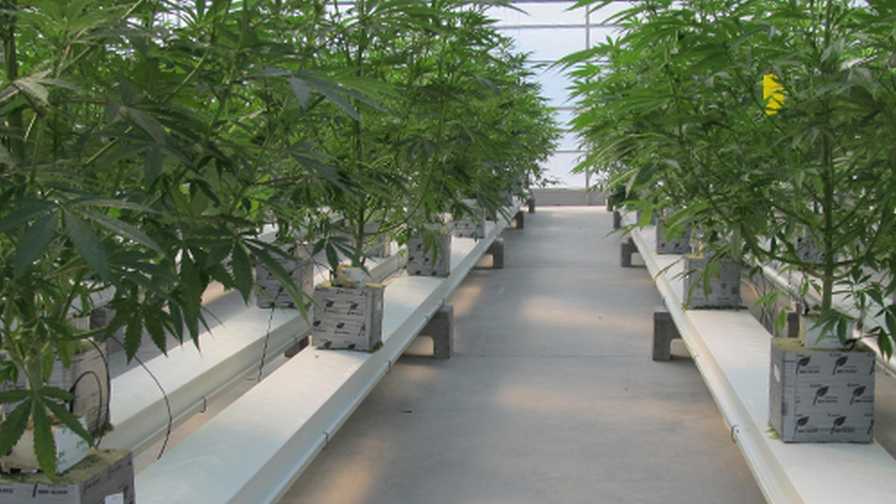Cannabis Microbusiness: Opportunity in a Crowded Market?
 The cannabis microbusiness model provides opportunities for cannabis entrepreneurs in emerging cannabis markets. The license allows owners and operators to run a small-scale cannabis business, normally with a limited canopy and fewer than 10 employees.
The cannabis microbusiness model provides opportunities for cannabis entrepreneurs in emerging cannabis markets. The license allows owners and operators to run a small-scale cannabis business, normally with a limited canopy and fewer than 10 employees.
Many people associate the cannabis microbusiness model with social equity initiatives, as the license comes with lower start-up costs, reduced entry fees, and often, priority license application review. Some liken cannabis microbusinesses to craft breweries; they’re a way for the smaller-scale entrepreneur to enter and compete with bigger players.
What do cannabis microbusinesses look like in the U.S? Which states permit them, and which do not? Read on to learn more about the cannabis microbusiness model.
What is a Cannabis Microbusiness?
Each state that allows them defines cannabis microbusiness a little differently. Let’s look at New Jersey. Here are the license guidelines from the Garden State, according to Marijuana Venture:
Under the state regulations and statute, microbusinesses are defined both by their physical size and number of employees. A microbusiness can have up to 10 employees and is limited to 2,500 square feet and either 1,000 mature plants or 1,000 pounds of cannabis product per month, depending on the class of cannabis license they possess. Cultivator microbusinesses are further limited to 24 feet of canopy height.
According to JDSupra, New Jersey microbusinesses can be cultivators, manufacturers, retailers, distributors, and delivery services. The article states:
In order to promote small business ownership in the New Jersey cannabis industry, the number of microbusiness licenses available will not be limited by the commission and microbusiness applications will be prioritized over other cannabis business applications during the licensing process. Additionally, microbusinesses will pay 50% of the license fee for their class.
Which States Allow Cannabis Microbusinesses?
Only a few U.S. states currently permit cannabis microbusinesses. According to MJBizDaily, just California, Massachusetts, and Michigan have actually enacted a microbusiness model. Other states with upcoming legal recreational markets allow microbusinesses, but they’re haven’t issued licenses yet. These states include Connecticut, Illinois, New Mexico, New Jersey, New York, Vermont, and Virginia.
It’s noteworthy that Cannabiz Media reports California is by far the leader in cannabis microbusinesses, having issued more than 300 microbusiness licenses over the years.
What About the Rest?
You may ask, “Why don’t more states with legal cannabis programs offer microbusiness licenses?” The simple answer is that the model is a fairly new concept. For many states, the logistics of negotiating and implementing a new cannabis license type is more trouble than it’s worth.
In addition, two other factors are at play. First, while the political climate is shifting in favor of social equity, some conservative states ignore or fight the trend. Second, some industry stakeholders perceive microbusinesses as a challenge to big cannabis, particularly large-scale multi-state operators (MSOs), as the license type traditionally includes residency requirements, reducing the number of available licenses for out-of-state operators.
Local Rising in Popularity
Whether or not the MSOs like it, a large percentage of the public supports buy-local initiatives. Setting aside a percentage or number of cannabis licenses for in-state residents keeps money local, supporting communities and encouraging participation of community members living in areas hard hit by the war on drugs.
Marijuana Venture reports that state regulations benefit New Jersey entrepreneurial residents:
Under the state regulations, all microbusiness owners must be New Jersey residents and at least 51% of owners and employees must reside in the municipality of the business or in an adjacent municipality. These requirements guarantee that microbusinesses will be hiring locally, thereby keeping money within the communities that allow them to thrive.
The cannabis microbusiness model also encourages a craft cannabis industry. Green Entrepreneur compares cannabis microbusinesses to craft breweries and wineries in that they can “grow, process, and sell small batches of marijuana through an exclusive retail outlet.” Moreover, smaller scale operations tend to prioritize cannabis quality over quantity, which fosters good, old-fashioned capitalist competition.
Room for Growth in the Microbusiness Model
While the microbusiness model provides opportunity, it can also be limiting. I think it’s safe to say that most cannabis entrepreneurs, even those with microbusiness licenses, expect their businesses to make them rich someday. It’s still the green rush, after all. Start small and grow big’ that’s the American success story, right? With microbusinesses, however, scaling isn’t an option. The above-mentioned MJBizDaily reporting explains that New Jersey’s model has low canopy limits, limitations on number of employees and the number of microbusiness licenses one individual can hold. As for Michigan, the article states:
Michigan is an example of a state that is proposing changes to its microbusiness structure in efforts to make it more viable, only two years after initial regulations took effect. The proposed changes include doubling the maximum plant count from 150 to 300 and allowing microbusinesses to purchase mature plants, edibles, concentrates, vaping cartridges, and other products from licensed operators rather than having to do everything in-house.
While the microbusiness model isn’t perfect, it is a solid start that has great potential to facilitate both social equity and the development of a craft cannabis industry. Given the growing interest in hiring and buying local, that seems like a clear win. Rather than deciding the microbusiness model is unsustainable and/or too much trouble, let’s continue to evaluate, understand, and support what is working and improve what isn’t.
Make no mistake, the cannabis microbusiness model opens the industry to owners and operators who would otherwise be shut out, and is a positive, if imperfect, step towards a more accessible and equitable cannabis industry.










